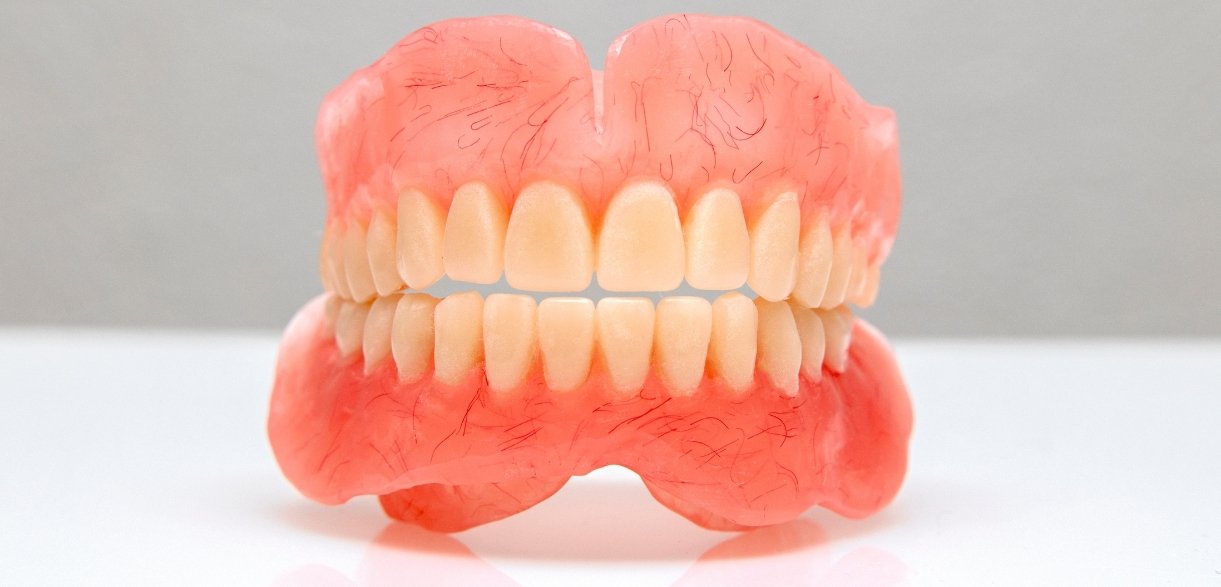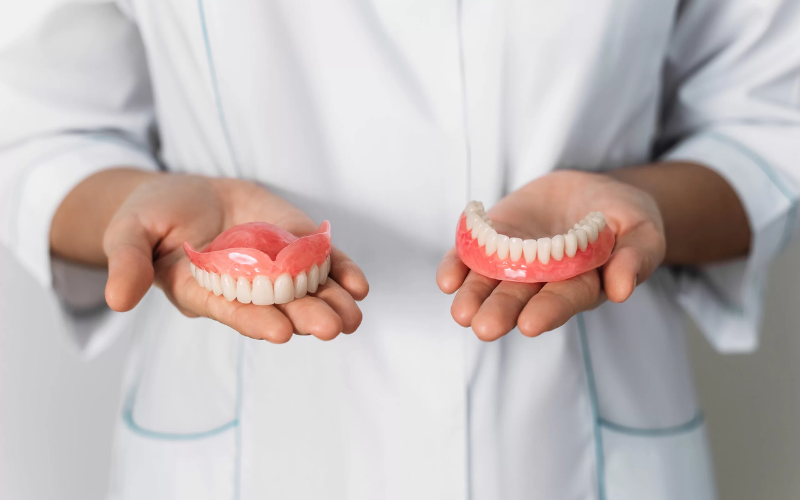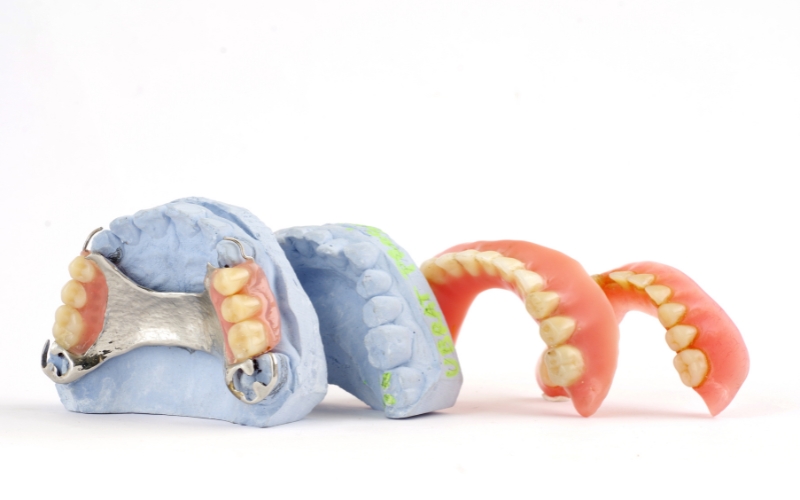1520 Green Oak Place, Suite B Kingwood, Tx 77339
Types of Dentures: Which Option is Right for You?

Dentures play a crucial role in dental health for many individuals. These removable appliances replace missing teeth, helping to restore function and aesthetics. Understanding the various types of dentures is essential for making informed choices. In fact, nearly 40 million Americans use dentures, according to the American College of Prosthodontists.
Despite their commonality, misconceptions about their appearance and comfort still persist. Some believe they look unnatural or are uncomfortable. However, advancements in dental technology have significantly improved the fit and look of dentures. Whether you have lost all your teeth or just a few, knowing your options can guide you toward the right solution for your needs.
What Is a Denture?
A denture is a prosthetic device designed to replace missing teeth. It serves both functional and aesthetic purposes. Dentures help you regain confidence by filling gaps in your smile. They also improve chewing ability, making it easier to enjoy a balanced diet. A denture can enhance facial structure, preventing sagging and volume loss in the cheeks. For many, they represent a life-changing solution to tooth loss.
Moreover, they can help with speech improvement, allowing for clearer communication. With the right fit and care, dentures can last many years, providing a reliable and effective way to restore your smile.
Types of Dentures
Full Dentures
Full dentures replace all teeth in the upper or lower jaw. They are typically recommended for individuals who have lost most or all of their natural teeth. Made from acrylic or plastic, these options fit snugly over the gums. These types can help restore facial structure and enhance speech.
Pros include improved aesthetics and functionality. However, the cons include possible discomfort and the need for adjustments.
Partial Dentures
Partial types are used when some natural teeth remain. These devices fill gaps between remaining teeth, maintaining dental structure. They can be either fixed or removable. Fixed partial ones, known as dental bridges, attach to surrounding teeth. Removable options allow for easy cleaning.
Pros include preserving remaining teeth and enhancing chewing ability. Cons may include a less secure fit and the potential for food traps.
Implant-Supported Dentures
Implant-supported options utilize dental implants for stability. Unlike traditional ones, which rest on the gums, these options anchor to titanium posts surgically placed in the jawbone. This option provides a more permanent solution.
Pros include increased stability and improved bite force. However, the cons involve a more complex procedure and higher costs.
Immediate Dentures
Immediate ones are placed right after tooth extraction. They allow patients to avoid going without teeth during the healing process. Typically made from acrylic, these types can be adjusted as the gums heal.
Pros include instant aesthetics and comfort post-extraction. However, cons may involve a less secure fit as healing occurs and frequent adjustments are needed.
Overdentures
Overdentures fit over remaining natural teeth or dental implants. They provide stability and can enhance oral function. These options are removable, allowing for easier cleaning.
Pros include improved comfort and better retention. On the downside, cons include potential wear on natural teeth and possible discomfort during the adjustment period.
Factors to Consider When Choosing Dentures
Choosing the right dentures involves several key factors. First, consider your oral health and the condition of your existing teeth. For example, patients with healthy gums may prefer partial dentures, while those with complete tooth loss may need full ones.
Next, evaluate your lifestyle and personal preferences. Active individuals lean toward implant-supported dentures for added stability. Additionally, budget and insurance coverage are vital considerations. Dentures can range significantly in cost, and understanding your insurance options can help manage expenses.
Lastly, consulting with a dental professional is crucial. They can assess your specific needs and recommend the best denture type for you. A professional’s guidance ensures you make an informed decision tailored to your unique situation.
How to Care for Dentures?
Caring for dentures is essential for longevity and oral health. Clean them daily to remove food particles and plaque. Use a soft-bristled toothbrush designed for dentures. Avoid using regular toothpaste, as it can scratch the surface. Instead, opt for a denture cleanser. Soak them overnight in a safe solution to keep them moist and maintain their shape.
Additionally, rinse them thoroughly before re-inserting them into your mouth. Regular dental check-ups are equally important. Your dentist can assess the fit and condition of your dentures, ensuring optimal performance.
Schedule check-ups at least once a year for maintenance and adjustments. Regular care extends the life of your dentures and promotes good oral hygiene.
Understanding the types available is essential for making the right choice for your needs. Whether you opt for full, partial, or implant-supported options, each has its benefits and drawbacks. Consider factors like oral health, lifestyle, and budget when deciding.
Always consult our dental professionals for personalized guidance. Take charge of your dental health today! Schedule a consultation with our dentists to explore your options. Investing in the right type can transform your smile and improve your quality of life.







